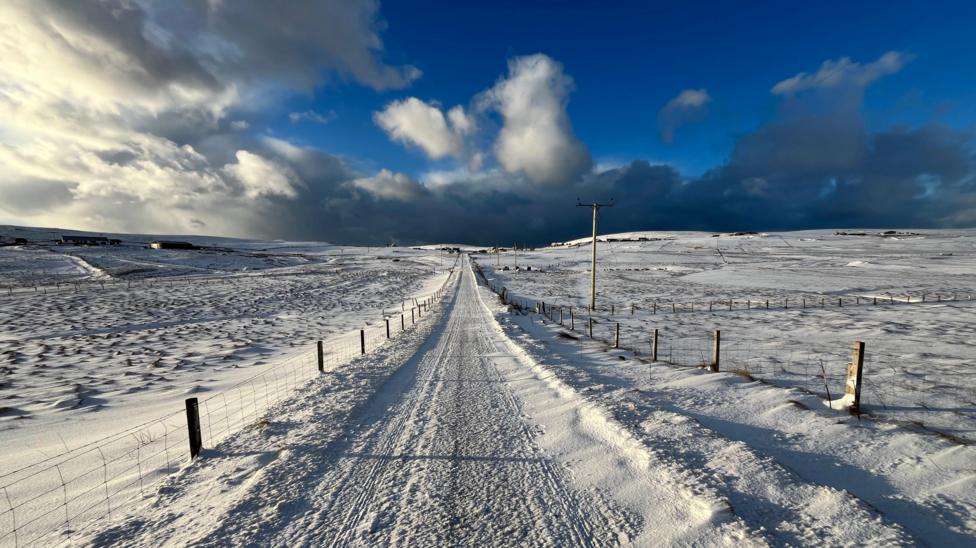The Met Office has issued snow and ice warnings for parts
of Scotland and England as much colder weather is set to arrive across the UK
from Sunday.
Frost and plunging temperatures will be widespread with
heavy snow forecast for higher ground in southern Scotland and northern
England.
A cold front will push southwards over the weekend, with the
air turning progressively colder into next week as an Arctic air mass becomes
established.
This change in weather fortunes comes about thanks to a
blocking area of high pressure building across Greenland with cold Arctic air
emptying out across the UK and bitter northerly winds developing.
The fact that this pattern established itself in late
November means we are in for some cold weather for the time of year but
temperatures would have been much lower had this system set up in the heart of
winter when the Arctic is far colder.
Will it snow?
Northerly winds will bring frequent showers to northern
Scotland, probably falling as sleet and rain near to coastal areas.
The hills of northern Scotland will see regular snow showers
with 5-10cm (2-4in) building up over hills and a few centimetres in some lower
areas by Monday, with the potential for some localised disruption where it
settles.
The ground in November is not as cold as it would be in
midwinter so some of the snow hitting the roads will probably melt, though
larger accumulations could gather on colder grassy surfaces.
Many inland areas of the UK are likely to see quite a lot of
dry weather with morning frosts and sunny skies.
Showers will be frequent in Northern Ireland along with
coastal areas of England and Wales - these will probably be mixed with some
rain, sleet and hail.
Low pressure moves across the UK on Monday and Tuesday,
bringing wet and windy weather on the south side of the low pressure.
There will be some heavy snow in the colder air on the north
side of the system, especially over high ground with Met Office
warnings of 15-20cm (6-8in) of snow above 400m (1,300ft) elevation in
parts of northern England and southern Scotland.
Towns and cities at lower elevations also have a risk of
seeing some disruptive snow, perhaps 2-10cm (1-4in) in places, but much will
depend on the precise track of the low pressure, the heaviness of the
precipitation and the elevation of the land.
These factors make forecasting this zone of potentially
disruptive snow very tricky - and this uncertainty is likely to stay in weather
forecasts for the next day or two.
When will the cold spell end?
There is a small chance that a second low pressure towards
the end of next week could bring some snow to the south of the UK. It is very
uncertain this far ahead but is something we will be monitoring closely over
the next week.
The cold spell looks set to last for about a week for many,
before milder Atlantic air returns in time for the start of winter.








